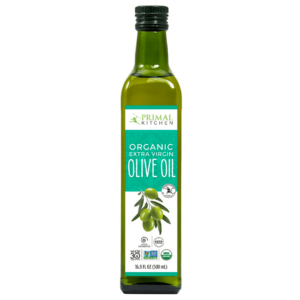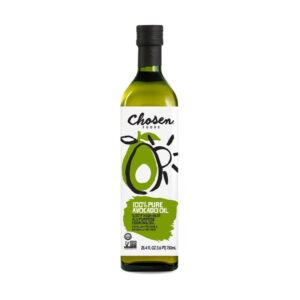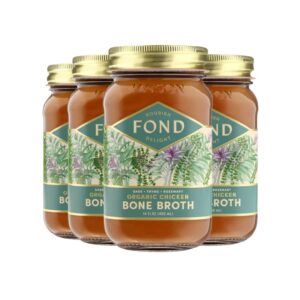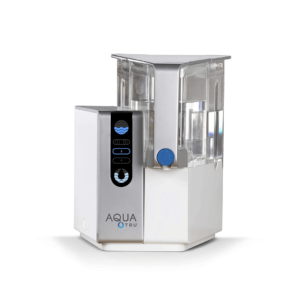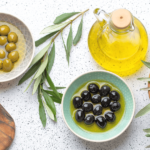Industrial seed oils or refined vegetable oils like canola, corn, soy, and sunflower, have been used for years and are marketed as “healthy.” Seed oils have been used since the late 1800s and commercialized in the early 1900s, but their health impacts have lately been questioned. So, what’s the deal with inflammatory oils? Do seed oils make you sick? Are they actually evil… or is it all just fearmongering? Can processed oils actually be heart-healthy?
Keep reading to learn more about cooking oils! It’s rev-oil-utionary (okay… failed attempt at a pun, be p-oil-ite).
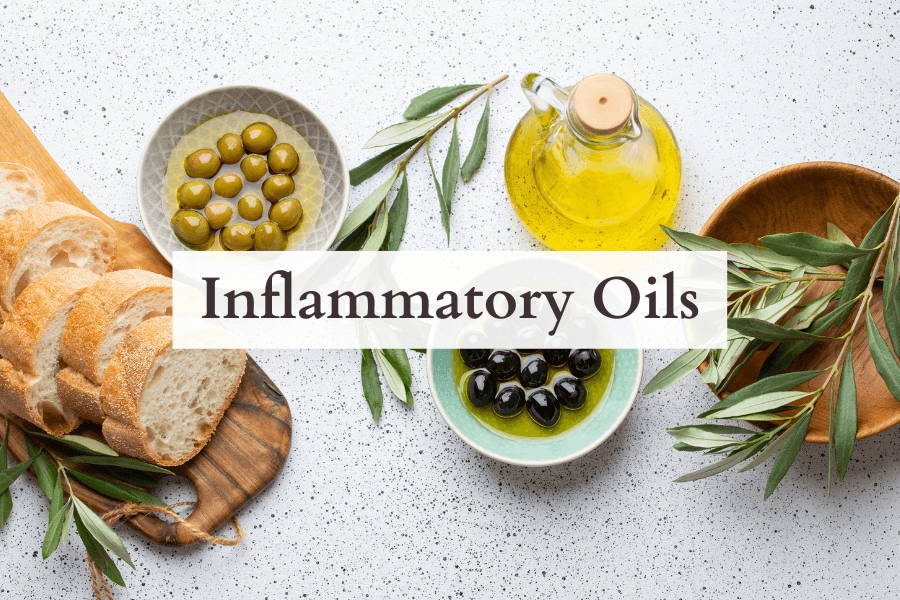
Note: This article contains affiliate links, meaning In On Around will make a small commission at no additional cost to you. This helps me maintain the site. As always, I value full transparency & only work with brands I love and trust.
Seed Oils Vs. Vegetable Oils – What’s The Difference?
Vegetable oils are fats or oils that are derived from fruit, grains, nuts, seeds, or other produce. They’re derived from crops. Seeds oils (also known as industrial seed oils), on the other hand, are a type of vegetable oil derived specifically from seeds.
Vegetable oils and seed oils come with a controversial list of potential health impacts, which we’ll dive into further down in the article… but they’re still ultra-popular! Cottonseed oil was the first popularized seed oil manufactured in 1911 by Procter & Gamble through chemical processing. Hello Crisco!
Their popularity has drastically increased because they’re cheap to make, inexpensive to buy, and fairly neutral in taste. Seed oils are very, very common.
In fact, the production of vegetable oils has increased more than 16x since 1909! [1, 2] According to Zero Acre, the consumption of soybean oil has grown 1000x since 1909. Yes – crazy, right?! [3] Its consumption has increased dramatically.
Seed oils are a type of vegetable oil.
What Are Inflammatory Oils?
Inflammatory oils are called inflammatory because they can lead to inflammation in the body. “Inflammatory” isn’t a formal “class” of oils, per se, but seed oils are commonly called inflammatory oils because of the potential side effects they can have. Let’s dive into why:
Oils have different combinations of unsaturated and saturated fatty acids, which can impact how fast an oil goes rancid (we dive into this more below). In addition, oils can contain different ratios of Omega-6 and Omega-3 fatty acids. Too much Omega-6 fatty acids and too little Omega-3 fatty acids can lead to health issues, especially around inflammation. Having the proper ratio is critical! [4, 5]
We’ve been told over the years that fats are unhealthy… this isn’t necessarily true! There is significant misunderstandings surrounding fats. Healthy fats are an important and essential part of a balanced diet, but not all fats are equal! The quality of fat matters.
How Are Seed Oils Made?
Doesn’t sunflower and vegetable oil sound healthy? It’s vegetables, right?! Well… not quite. It’s another example of deceptive naming found in the food industry.
While vegetable and seed oils may sound healthy since they can come from natural crops, these oils are made with extreme chemical processing. Solvents (like hexane), mechanical pressure, and high amounts of heat are used to extract the oil from the raw material. For reference, commercial grades of hexane are used in rubber cement, adhesives, varnishes, and inks… and are linked to many potential health issues. [6]
Production of vegetable oils has increased 16x since 1909.
The oil is chemically extracted and goes through a very long list of steps, like pressing, bleaching, and deodorizing before it becomes the final product. It is far from natural. They’ve never existed in nature.
These seed oils are rancid, but you can’t tell since they’re so deodorized!
Although this video claims that canola oil is healthy (which is so ironic looking at the process), this is a great example of how processed vegetable oil can be:
What Is Linoleic Acid (LA)? What Is PUFA?
Seed oils, like canola, corn, and soy oil, have moderate to high amounts of linoleic acid. Linoleic acid is an Omega-6 polyunsaturated fatty acid (also known as PUFA). Grapeseed and sunflower oil, for instance, contains about 71% of linoleic acid content. Olive oil, on the other hand, has usually 12-27% of linoleic acid.
The more linoleic acid, the more unstable the oil, and the easier it oxidizes. Linoleic acid is very unstable. In fact, linoleic acid is 40 times more likely to oxidize than saturated fats. [7]
Oxidation causes inflammation in the body.
These fats commonly oxidize and go rancid very quickly. [8] This oxidation can be very harmful over the long term.
While linoleic acid is an essential fatty acid that we must include in our diet, on average, we’re consuming WAY too much. We can easily consume linoleic acid from high-quality food sources, like organic almonds, avocadoes, pecans, cashews, chicken, chia seeds, and more. Low to moderate linoleic acid amounts are found in olive, avocado, and coconut oil.
Monounsaturated Vs. Polyunsaturated Vs. Saturated Fats
So, what’s a healthy fat and what’s unhealthy fat? Are the fats in seed oils bad fats? Well, let’s dive into it all!
There are 3 common types of fat:
- Unsaturated Fat
- Monounsaturated Fat: considered “good fat” that includes omega-9 fatty acids
- Polyunsaturated Fat: considered “good fat” that includes omega-3 and omega-6 fatty acids
- They have double bonds which makes them more susceptible to oxidation and rancidity when heated!
- They oxidize on their own (they don’t even need heat to do so)
- Saturated Fat: the most common and considered “bad fat,” but it gets a bad rap
- This is considered “bad” because it can increase your LDL cholesterol, which can increase the risk of heart disease and stroke according to some studies. [9] The research on this is split – some other studies claim that saturated fat has no impact on heart disease (hence the keto movement, which is very centered around low carb, high fat diets). [10, 11]
- Keep in mind, that you don’t need to cut it out completely. The American Heart Association (AHA) recommends sticking to daily calories with 10% of saturated fat or less. [12]
- There saturated fats can be broken up into:
- Long-chain fatty acids (with 13-21 carbon atoms)
- Medium-chain fatty acids (with 6-12 carbon atoms)
- Short-chain fatty acids (with <6 carbon atoms)
Cooking oils, like olive oil and canola oil, are made up of different percentages of saturated and unsaturated fats.
Fat isn’t a “bad” word… as long as you’re not eating too much, it’s a very essential part of a daily, healthy diet! The key is balance – you shouldn’t be only eating fat-rich foods. For instance, butter is high in saturated fat, but it’s also a good source of Vitamin A which is essential for proper brain development in children. Just be aware of how much you’re consuming.
Over 23%+ of American calories come from fats primarily from vegetable oils. [13]
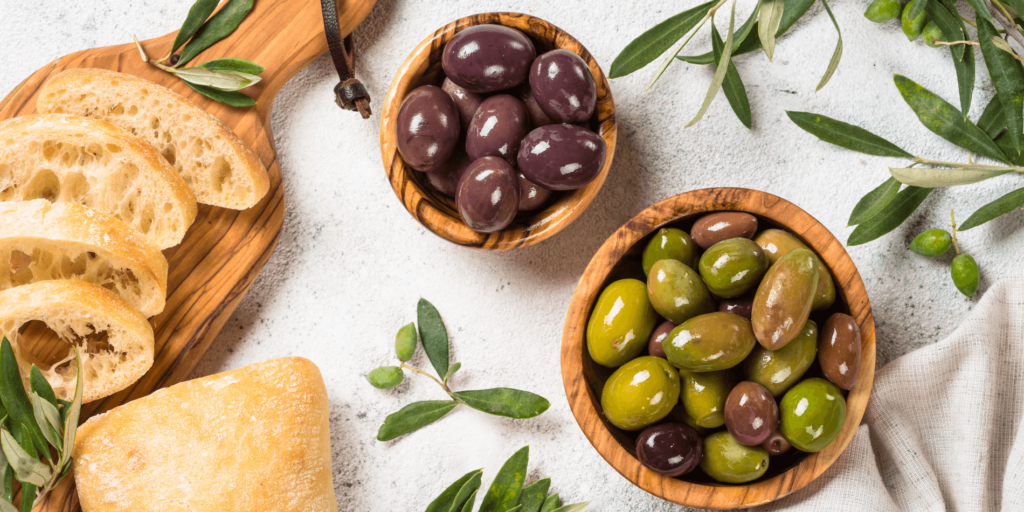
Are Seed Oils Bad For You?
This is a heated topic, but based on many studies seed oils and inflammatory vegetable oils can be bad for you in the long term. Seed oils can be toxic to the body. How do cooking oils impact your health?
Seed oils, especially ones with high amounts of linoleic acid, are potentially linked to
- Inflammation around the body [14]
- Since many of these seed oils have high amounts of Omega-6
- The body converts linoleic acid to arachidonic acid, which is a building block for compounds that are inflammatory.
- To learn more about eating an anti-inflammatory diet, check out: How To Eat An Anti-Inflammatory Diet
- Immunosuppression (harms immune system function) [15, 16, 17]
- Damage to ocular cells (in the eyes) or macular degeneration [18, 19]
- Increase in weight gain [20, 21, 22]
- Harm to reproductive system function (particularly in the formation of embryos) [23, 24]
- Declining fertility rates [25, 26]
- Higher tumor growth rates [27]
- Increased oxidative stress (cellular damage) or atherosclerosis [28]
- Weight gain [29, 30, 31, 32]
- Memory issues [33]
- Migraines and headaches [34]
- High amounts of process contaminants, like carcinogens [35]
- More brain plaque development (which is linked to Alzheimer’s Disease) [36]
- Derived from genetically modified crops [37]
- To learn more about GMOs, check out: 13 Pros And Cons Of GMOs (Backed By Evidence)
- Raises omega-6-to-omega-3 fatty acid ratios
- This is linked to a host of potential health issues, such as impaired neurological development [38]
… and other health issues, like asthma, autoimmune diseases, diabetes, infertility, and more. [39, 40]
Marketing campaigns for seed oils claim that they have high amounts of Vitamin E, low amounts of omega-3 ALA, and can help lower cholesterol, however, this is not the full picture. These properties are not unique to seed oils whatsoever. The cons far outweigh any potential pros. It’s no wonder why there’s been a worldwide explosion of chronic disease!
Note: many of these studies are animal-based (like bovine/cows, ovine/sheep, mice) or cell-based. More research is needed, however, the current research is very convincing that seed oils should be limited.
Americans consume 5-10 tbsps. of vegetable oil daily, on average.
What Are Processed Oils?
If you eat out at a lot of restaurants or use processed oils at home while cooking, you could be consuming processed seed oils on a daily basis. So what are the good and bad cooking oils? Let’s dive into the ones you should avoid…
It’s best to limit your consumption of processed oils, cooking oils, vegetable oils, and polyunsaturated oils, such as:
- Canola oil (aka rapeseed oil)
- Corn oil
- Sunflower oil
- Safflower oil
- Soy oil
- Palm oil
- Wheat germ oil
- Peanut oil
- Rice bran oil
- Margarine and other butter substitutes
- Vegetable shortening
- Vegetable oil or vegetable oil blends – these are usually a combination of the above oils
- Any foods with trans fats
- Most fake vegan butters
- Hydrogenated oils (which have trans fats)
- Cooking sprays with propellants
Palm oil is the most widely used vegetable oil in the world.
“The Hateful Eight” are known as the top eight most industrial toxic seed oils. These include: canola, corn, cottonseed, soy, sunflower, safflower, grapeseed, and rice bran.
Soybean oil is particularly popular. In fact, in 2021, Americans consumed about 11.34 million metric tons of soybean oil. Keep in mind that many of these processed oils are in faux food products, like vegan butter, so always read the full ingredient list. Even just one teaspoon of canola oil in oat milk, for instance, adds up over time.
Americans consumed over 11.34 million metric tons of soybean oil in 2021. [41]
Is Organic Canola Oil Healthy?
No, just because canola oil is organic, doesn’t mean it’s healthy. Canola oil in general should be limited.
While canola oil is “generally recognized as safe” (GRAS) by the US Food & Drug Administration (FDA) as of the mid-1900s, it did not go through rigorous long-term safety studies. In fact, they granted GRAS status because they thought it was already used on such a mass scale that its chemical composition and fatty acid profile were safe. [42, 43, 44]
A healthy person should have about 2% of polyunsaturated fat (PUFAs) in their body fat. However, it’s common for people to have as much as 30% of polyunsaturated fat in their body fat. [45] This is way too much! The American Heart Association recommends keeping saturated fat levels to under 5% of your daily diet. [46]
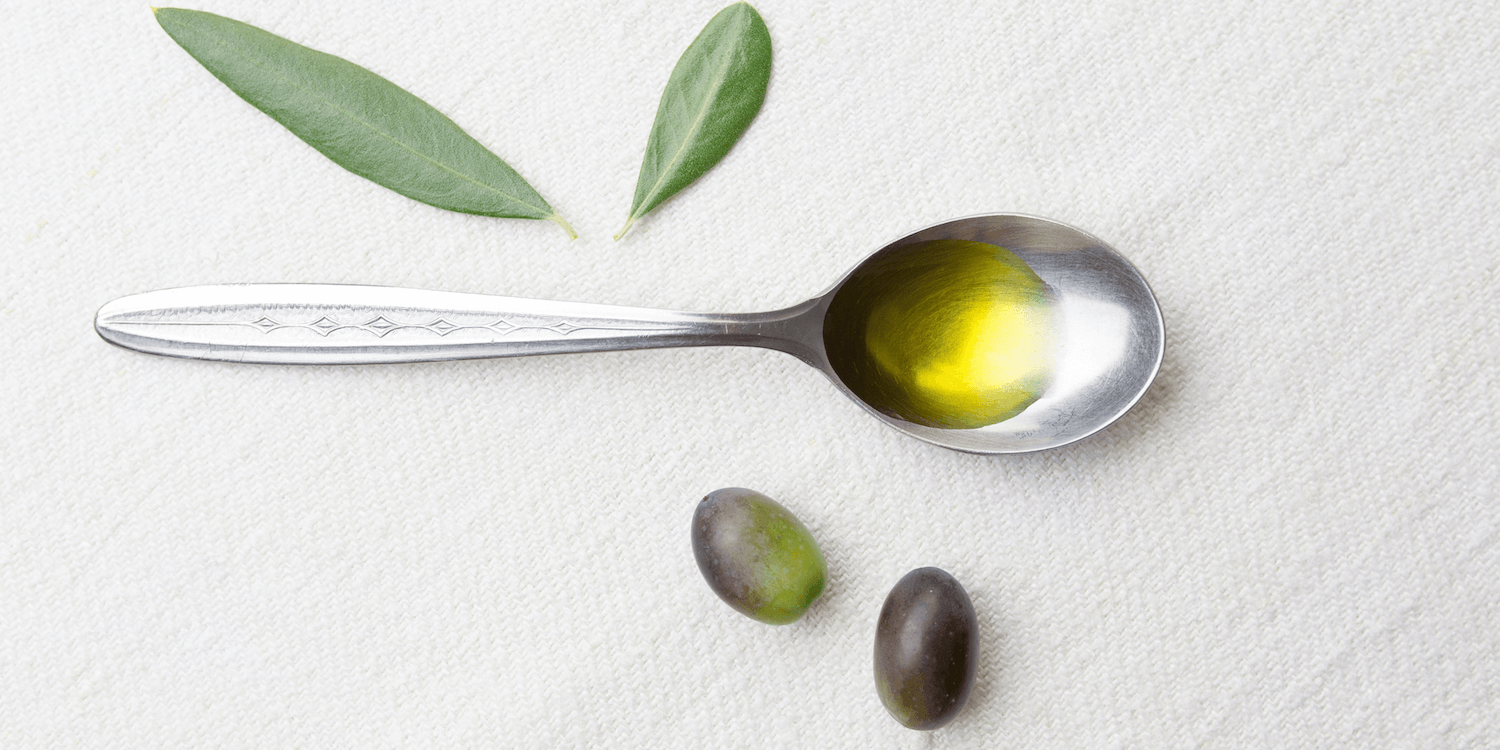
Are Seeds In Their Whole Form Bad For You?
No, just because seed oils may be harmful, doesn’t mean that seeds in general are harmful. These are seeds in their real, whole-food forms.
The production of seed oils is also extremely wasteful. For instance, it takes about 98 ears of corn to produce just 5 tablespoons of corn oil. Are you eating 98 ears of corn a day!? No, didn’t think so. The seeds go through a long list of extractions to produce an oil they’re not usually producing on a mass scale.
What Are Healthy Cooking Oils?
There are plenty of healthier cooking oils available, such as:
- Extra virgin, cold-pressed avocado oil – up to 500°F (best oil for high-heat cooking)
- Extra virgin cold-pressed olive oil – up to 350°F (use in cold dishes or very low heat only)
- Virgin (unrefined), cold-pressed coconut oil (in moderation, higher in saturated fats) – up to 350°F
- Grass-fed, pasture-raised butter – up to 350°F
- Sesame oil (in moderation) – up to 410°F
- Organic almond oil – up to 495°F
- Flaxseed oil (flax oil) – up to 225°F (use in cold dishes)
- Hempseed oil – up to 165°F (use in cold dishes)
- Walnut oil – up to 320°F (use in cold dishes)
- Grass-fed tallow and lard
- Grass-fed ghee (clarified butter, in moderation) – up to 500°F (best for high-heat cooking)
- A note on ghee: the quality of ghee really matters, especially since so any toxins are lipophilic and can bioaccumulate in animal fatty tissues. Use only in moderation.
Organic is best (though it’s nearly impossible to find 100% organic in some oils, like avocado). If you can’t find organic, opt for non-GMO. Keep refined avocado, coconut, and olive oil to a minimum, as well as organic peanut oil and artisanal grapeseed oil. Avocado, coconut, and olive oil (my 3 favorites) have lower linoleic acid content and good smoke points.
When you burn fats and oils, it’s important to keep the oil smoke point in mind since it increases oxidation and increases harmful cooking fumes. Polycyclic aromatic hydrocarbons (PAHs) and aldehydes can commonly be found in cooking fumes and contain PUFAs. Oils with higher amounts of linoleic acid generate even more! [47]
Healthiest Cooking Oil Brands
There are MANY oils on the market that are improperly labeled or adulterated. [48] Looking into the quality of the brand can help. Authentic avocado oil should be green and taste somewhat grassy or buttery. Look for oils that distinguish their harvest time.
My favorite oil options: Chosen Foods Avocado Oil, Kasandrinos Organic Extra Virgin Olive Oil, Primal Kitchen Olive Oil, and Nutiva Coconut Oil.
- Opt for 100% organic, cold-pressed extra virgin olive oil that’s from a single source (so it’s not a mixed oil).
- Look for bottles that are within 6-12 months of harvest date or pressing date
- Look for certified origins, like:
- 100% Qualita Italiana (in Italy)
- California Olive Oil Commission (COOC)
- North American Olive Oil Association (NAOOA)
82% of avocado oil is rancid or mixed with other oils… yikes! [49, 50]
- Opt for cold-pressed
- Be careful when you buy refined oils – look for companies that use a natural refining process. It’s better to use unrefined!
- Many cooking oil sprays use propellants and other additives, but Chosen Foods is free of propellants, chemicals, or emulsifiers (it’s a great option!).
- Also opt for oils in dark glass bottles instead of plastic, when possible. Bisphenols, like BPA, BPS, BPF, and other endocrine disruptors can leech from plastic packaging. The dark-colored bottles can help reduce oxidation – avoid light or clear bottles!
- Some people avoid oil altogether. While I don’t think that’s necessary, it’s just important to be aware of your consumption levels. If you’re looking to sauté something and want to avoid oil, opt for filtered water or bone broth instead.
- You can read more about filtered water here: What To Look For In A Water Filter or Purifier
- You can read more about bone broth here: The Healing Benefits Of Bone Broth For Gut Health
How To Avoid Inflammatory Oils
Here are some additional tips on avoiding inflammatory seed oils:
- Read ingredient labels!
- Don’t just read the front label. Flip the package over and read the full ingredient list. There is a lot of deceptive marketing on the front label.
- Limit eating at restaurants and eating pre-packaged foods
- Of course, you don’t need to cut out restaurant visits altogether, but it’s important to know that most restaurants use less-expensive inflammatory oils.
- Cook at home
- Swap your cooking oils for better options! You have control over the food you eat in your own home.
- Be conscious of cooking oils that can be used for high heat
- If you’re cooking at a higher heat, use oils that have a low PUFA content and high smoke point.
Final Thoughts – Are Seed Oils Actually Toxic?
The conversation surrounding seed oils and inflammatory oils can be controversial. Some people claim seed oils are healthy, while others (such as myself) know that seed oils should be limited.
One meal with seed oils or inflammatory oils likely won’t impact your health in significant ways, but eating it daily can have a big impact on your health long-term. But making conscious changes to limit your exposure is easier than you might think! You have the most control over the products you bring into your home… so always opt for quality food products that are free of toxic oils. Fuel your body with the most optimal, high-quality ingredients available.
If you’re interested in learning more, my friend Courtney at Realfoodology also has a great podcast episode on seed oils!
⬇ Pin this “Are Inflammatory Oils Toxic?” pic on Pinterest for future reference! ⬇
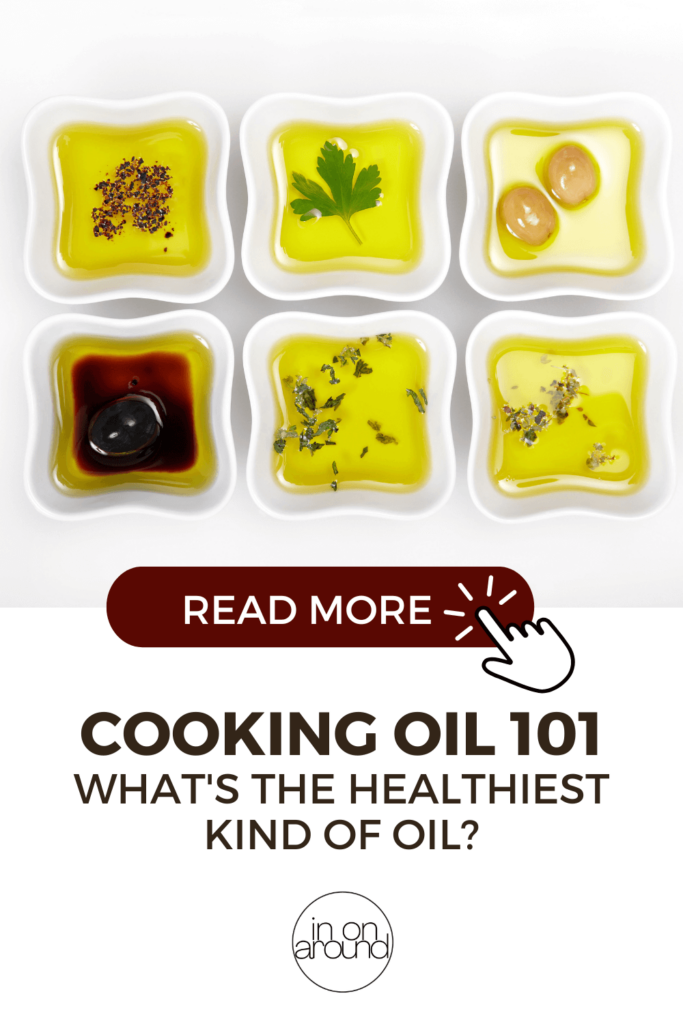
Frequently Asked Questions – Inflammatory Oils To Avoid While Cooking
Click on the below FAQs to learn more about inflammatory oils, seed oils, and toxic vegetable oils.
What's The Difference Between Seed And Vegetable Oils?
How Are Seed Oils Made?
Does Linoleic Acid Create Oxidation?
Why Are Seed Oils Bad For You?
What kind of oils do you use for cooking?
Let me know your thoughts and key takeaways in the comments below!
You can watch our web story here.
xoxo,

Want to read more? Check out my other articles here!
Other references on Inflammatory Oils: Zero Acre, Consumer Reports, Wild Health, GQ, Goop, Better Nutrition, Mind Body Basics, All Recipes, Arthritis, Santa Cruz Core, Well + Good, Wholistic Nutrition, Healthline, NY Post, Eat2Run, Allergic Living, Dunetz, Plateful Health, All Recipes, Mark Hyman, EPA, Dr. Tyler Jean, Bon Appetit, Evie Magazine, Coco Therapy, Dr. Axe, Dr. Weil
Copyright In On Around LLC 2022 ©. The statements made on this website have not been evaluated by the FDA (U.S. Food & Drug Administration). They are not intended to diagnose, treat, cure, or prevent any disease. The information provided by this website should not be used as individual medical advice and you should always consult your doctor for individual recommendations and treatment. The information contained in this site is provided on an “as is” basis. Related to this site, there are no guarantees of completeness, accuracy, usefulness, or timeliness. In On Around LLC assumes no responsibility or liability for any errors or omissions in the content of this site.

